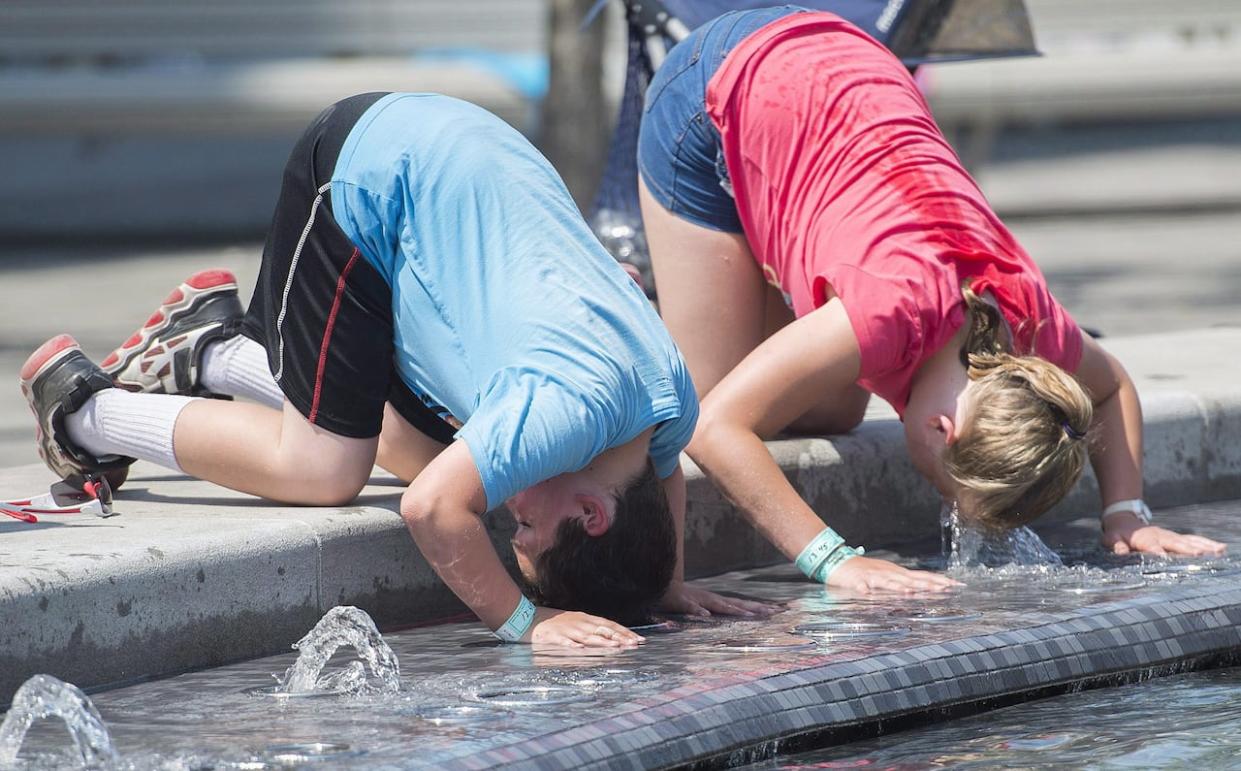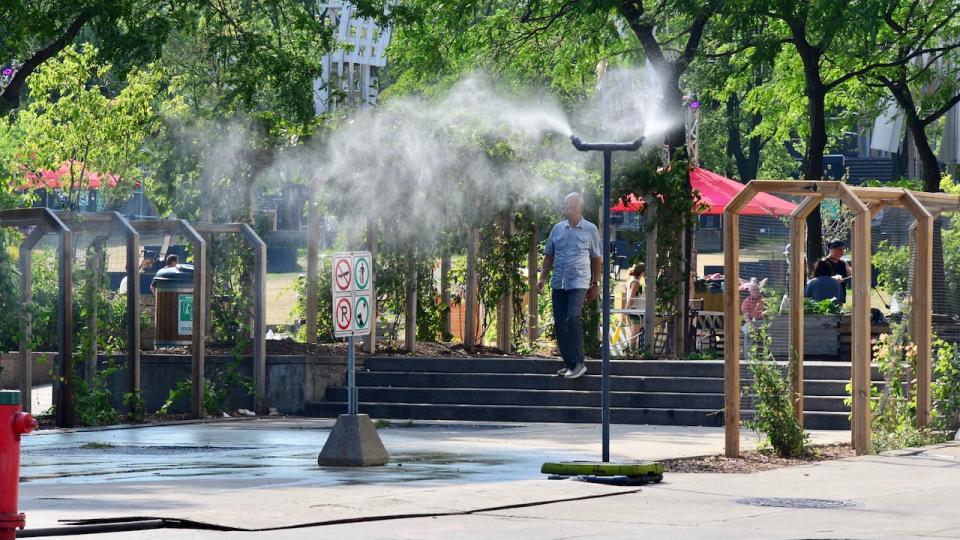Montreal braces for intense heat wave with temperatures expected to soar

A heat wave is coming to Montreal this week with temperatures expected to reach as high as 35 C.
A warm air mass will affect southern Quebec beginning Tuesday, with overnight lows above 20 C. These conditions will persist into Thursday evening, according to a special weather statement by Environment and Climate Change Canada (ECCC).
Last week, ECCC announced that its experts predict higher-than-normal temperatures throughout most of Canada this summer.
"Climate change is affecting Canadians' health, safety and quality of life," an ECCC news release says. "We are already facing record-breaking climate conditions, with wildfires and extreme heat becoming more frequent."
Past heat waves have led to tragedy in Montreal. In the summer of 2018, 66 people died during a heat wave.
City officials have launched a number of measures in the years since in effort to prevent heat-related deaths, including a special intervention plan when the city is facing extreme heat.
On its website, Montreal recommends people drink lots of water, even if they aren't thirsty, during heat waves. People should reduce physical activity, wear light-coloured clothing, keep in touch with family and friends and spend a few hours per day in an air-conditioned location, the city says.

The city of Montreal recommends people spend some time during the day in air-conditioned spaces, and also has mist stations available for cooling off outdoors. (Jean-Claude Taliana/CBC)
Montrealers should call Info-Santé at 811 or talk to a health-care professional if they have symptoms such as exhaustion, dehydration, headache, dizziness or confusion. If these symptoms are coupled with feeling feverish, it could be heat stroke and require calling 911, the city says.
The city recommends visiting areas such as parks, swimming pools, mist stations and libraries to cool off.
Dr. Laura Sang, a family physician working in the greater Montreal area, told CBC Montreal's Daybreak that the most common form of heat illness she gets are people with fungal infections on their skin because they struggle to keep it dry.
Those with acute heat-related illness usually end up in the emergency room, she said.
She said young children may dehydrate quicker on hot days, and everybody should be cautious about participating in outdoor sports or activities when temperatures rise.
Sang said she is most worried about older populations, especially those in long-term care homes that don't have proper air conditioning or ventilation.
She warned that young children or older people with cognitive impairment may not recognize the signs of dehydration or other heat-related symptoms. She said it's good to be able to recognize these symptoms in others.
If someone stops sweating when it's really hot, she said that's a bad sign. Other symptoms to look for are dry mouth and lips and signs of confusion, she said. This could be a sign they are approaching heat exhaustion.
"What you want to do is get that person out of the heat, cool them down and rehydrate them," Sang said.


